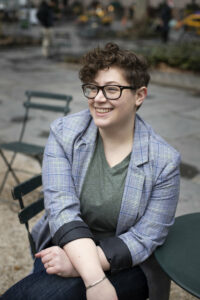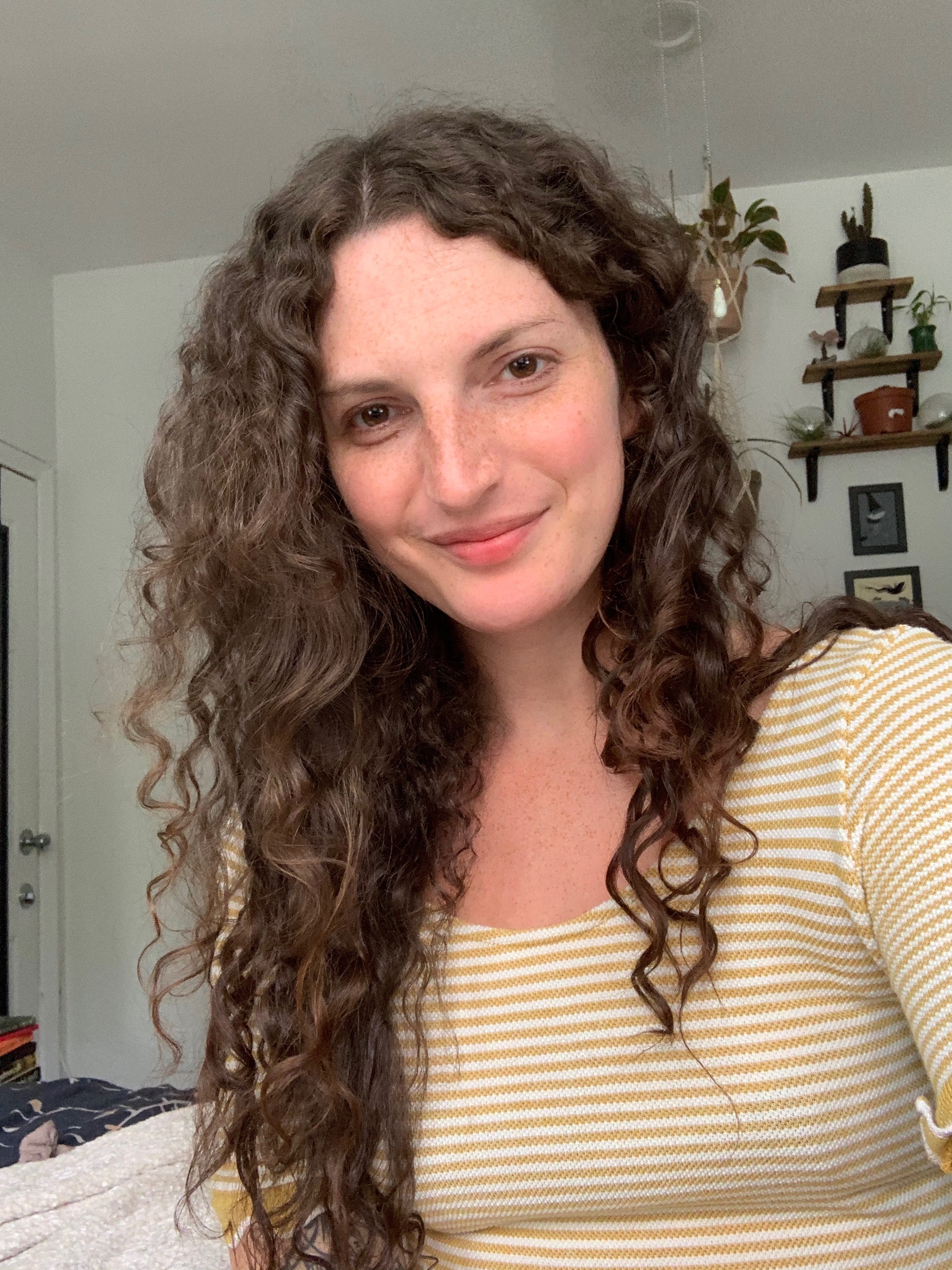A wry, warm, and irresistible debut following a young queer woman who finds herself in a love triangle with an unobtainable intern and a quick-tempered musician, set between the sterile office of a newspaper and the intoxicating night scene of New York City, and pitched as Sally Rooney meets The Devil Wears Prada.
WORK NIGHTS
by Erica Peplin
Gallery, June 2025
(via Frances Goldin Literary Agency)
It’s 2015 and Jane Grabowski, a self-described “dumpy dyke,” is living in Bushwick and working in advertising at the nation’s most storied newspaper. By day, she is reluctantly dragged into a glamorous, precarious, and changing industry, and into the lives of a motley crew of office workers, who alternately horrify and delight her. By night, she goes out with the cool and flighty Madeline Navarro, an ostensibly straight, staggeringly pretty Guatemalan intern with an expensive lifestyle. Despite many signs to the contrary, it feels like Madeline might be the one—except her visa is about to run out.
Also, Jane keeps running into Addy, a temperamental, deeply moral, slightly uncool singer-songwriter. Something shifts, and Jane finds herself spiraling, terrifyingly, towards love. But Madeline’s feelings are shifting too, and it feels truly impossible—and maybe unnecessary—to choose. As small betrayals pile up, alongside the soulless dramas of work, Jane finds herself stuck and desperately unhappy. She’s determined to grow up, quit her job, and change her life. But the comforts of the known, and the thrill of the chase, keep pulling her back, until all her unmade decisions collide.
Wry, tender, and acutely attuned to the spiky intimacies of love, work, and friendship, Work Nights delves deep into the existential conundrums of finding your way in a cold, capitalist world—a world that is also occasionally alight with beauty and strangeness. It joins the small but growing cannon of novels examining the casualties of modern offices, from Joshua Ferris’s Then We Came to the End to Halle Butler’s The New Me and Sarah Thankam Mathews’ All This Could Be Different, and writers like Kristen Arnett, Rachel Khong, Elif Batuman, and Sally Rooney, whose smart, offbeat protagonists are alert to the delusions of the world around them, though not always to their own.
Erica Peplin is a writer from Detroit, Michigan, now based in Brooklyn. Her short stories and essays have appeared in n+1, Joyland, The Millions, McSweeney’s, Autostraddle, The Brooklyn Rail, The Village Voice, Cosmonauts Avenue, Another Gaze, and Hobart. From 2015-16, she worked in the advertising department of the New York Times. Since then, she’s worked as a shipping clerk, a high school custodian, and a restaurant server.

 Based on her forthcoming course at Harvard University, the announcement of which received major media coverage from around the world, UNTITLED ON TAYLOR SWIFT will be the first serious work of cultural criticism about Taylor Swift as an artist and creator, touching on girlhood, fame, privilege, costume, economics, song and stagecraft, and the author’s own transition to womanhood. In the vein of Sarah Smarsh’s She Come By It Natural, on Dolly Parton, or Touré’s I Would Die 4 U: Why Prince Became an Icon, Burt’s book will be an appreciation and analysis of one of the most influential pop stars of a generation.
Based on her forthcoming course at Harvard University, the announcement of which received major media coverage from around the world, UNTITLED ON TAYLOR SWIFT will be the first serious work of cultural criticism about Taylor Swift as an artist and creator, touching on girlhood, fame, privilege, costume, economics, song and stagecraft, and the author’s own transition to womanhood. In the vein of Sarah Smarsh’s She Come By It Natural, on Dolly Parton, or Touré’s I Would Die 4 U: Why Prince Became an Icon, Burt’s book will be an appreciation and analysis of one of the most influential pop stars of a generation. When Cody Delistraty lost his mother to cancer in his early 20s, he found himself unsure how to move forward. Planning for her recovery, he and his family had a purpose. But after she was gone, there seemed to exist only the empty advice on grief: move through the five stages, achieve closure, get back to work, go back to normal. So begins a journey into the new frontiers of grief, where Delistraty seeks out the researchers, technologists, therapists, marketers, and communities around the world looking to cure the pain of loss in novel ways. From the neuroscience of memory deletion to book prescriptions, laughter therapy, psilocybin, and Breakup Bootcamp, what ultimately emerges is not so much a cure as a fresh understanding of what living with grief truly means.
When Cody Delistraty lost his mother to cancer in his early 20s, he found himself unsure how to move forward. Planning for her recovery, he and his family had a purpose. But after she was gone, there seemed to exist only the empty advice on grief: move through the five stages, achieve closure, get back to work, go back to normal. So begins a journey into the new frontiers of grief, where Delistraty seeks out the researchers, technologists, therapists, marketers, and communities around the world looking to cure the pain of loss in novel ways. From the neuroscience of memory deletion to book prescriptions, laughter therapy, psilocybin, and Breakup Bootcamp, what ultimately emerges is not so much a cure as a fresh understanding of what living with grief truly means. 
 In many ways, RAPE GIRL: A STUDY IN NINE PARTS is the book that essayist, critic, and poet Jamie Hood has been writing her entire life. In the thirty years since her first sexual assault (age six, by the neighbor), it has taken many forms: a chronological, straight memoir of violence; a book-length poem; a manifesto; a novel. In the wake of each subsequent attack (twice as a teenager, several times in graduate school, most recently at a Brooklyn bar), and resultant attempt to narrativize the violence, what became clear was that no single genre was able to capture the entirety of what she was trying to say.
In many ways, RAPE GIRL: A STUDY IN NINE PARTS is the book that essayist, critic, and poet Jamie Hood has been writing her entire life. In the thirty years since her first sexual assault (age six, by the neighbor), it has taken many forms: a chronological, straight memoir of violence; a book-length poem; a manifesto; a novel. In the wake of each subsequent attack (twice as a teenager, several times in graduate school, most recently at a Brooklyn bar), and resultant attempt to narrativize the violence, what became clear was that no single genre was able to capture the entirety of what she was trying to say.